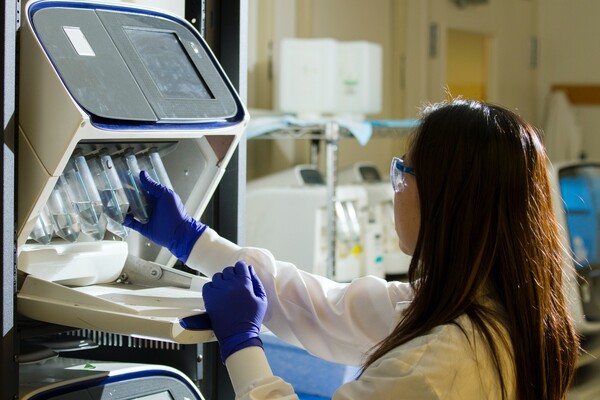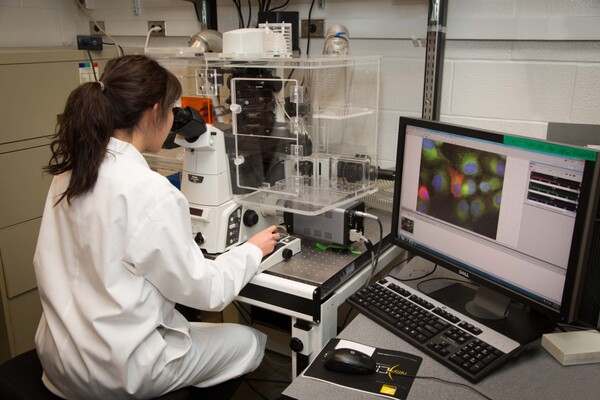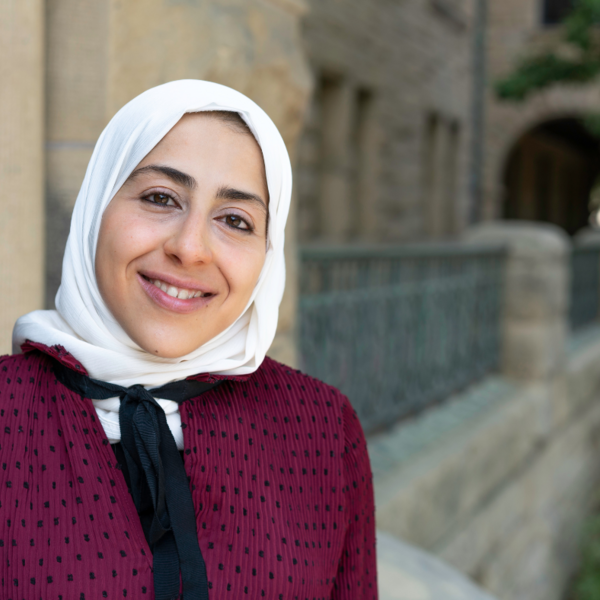
Main Second Level Navigation
Breadcrumbs
Medical Science
MSc & PhD
The Institute of Medical Science (IMS) offers stimulating, research-intensive MSc and PhD programs in one of four areas of research: basic sciences, clinical sciences, health systems and services, and population health research. Each stream offers a variety of multidisciplinary studies in fields such as cardiovascular sciences, neuroscience, bioethics, stem cell biology, respiratory medicine, transplantation, and psychiatric and brain health. This breadth is also reflected in our elective courses - from neuroanatomy to regenerative medicine and cardiovascular science.
Our programs are full-time and offer an immersive graduate training experience. We specialize in multidisciplinary translational research with bench-to-bedside clinical applications. Under the mentorship of one of our world-renowned faculty, IMS students receive specialized graduate training and exposure to Toronto’s finest cutting-edge biomedical research. Students can also participate in numerous Graduate Collaborative Specializations that provide more opportunities to develop multidisciplinary research skills and collaborations.
Our Programs

In addition to completing a thesis, students take 2.0 FCE*:
- MSC 1010H (MSc Seminars in Translational Research, 1.0 FCE)
- modular courses (two courses at 0.25 FCE each)
- elective course (1.0 FCE)
Students successfully finish this program in 2 years.

In addition to conducting independent and original research that will form their
thesis, students complete 2.0 FCE:
- MSC 1011H (PhD Seminar Series in Translational Research, 0.5 FCE)
- modular courses (0.25 FCE each)**
- elective (1.0 FCE)
Typically, students successfully complete this program in 5 years.
Alumni Profile

Alaa Youssef, PhD
During my graduate training I developed many transferrable skills such as gathering evidence, problem-solving, team work and most importantly, communicating and learning from others.
In my work today, I apply these skills by studying organizational readiness to implement and use artificial intelligence (AI) in healthcare to promote diagnostic excellence in patient care.
My advice to all prospective students is to enjoy your graduate training in all its highs and lows. Get to know your lab, mentors and research team very well. Most importantly, try to engage and meet other people, push yourself out of your comfort zone by building connections and seeking advice when needed; you will be surprised by how inspiring and illuminating people’s research and career journeys can be.
Potential Career Paths
In 2022, the School of Graduate Studies (SGS) tracked the career outcomes of 5,128 PhD students who graduated from the University of Toronto between 2016 to 2021. The data below is from 259 medical science PhD graduates.
Positions
Some examples of the positions our medical science graduates held included:
- Postdoctoral fellowships
- Hospital-based jobs
- Tenure-stream faculty
Employers
Some examples of employers for whom our medical science graduates worked included:
- The University of Toronto
- University Health Network
- The Hospital for Sick Children
- St. Michael's Hospital
The chart below shows a percentage breakdown of the various sectors in which our medical science PhD graduates worked at the time the survey occurred.
Main Employment Sectors of Medical Science PhD Graduates
Chart data
| Post-Secondary Education | Private Sector | Public Sector | Charitable Sector | Individual Sector | Info Not Public/Other |
|---|---|---|---|---|---|
| 39.4 | 21.2 | 26.3 | 0.4 | 0.8 | 12 |
By the Numbers
Institute of Medical Science
*Full course equivalent. A typical 0.5 FCE is over one term (13 weeks), meeting 1-2 times per week. A typical 1.0 FCE is over two terms (26 weeks), meeting 1-2 times per week.
** For full details, please refer to the Institute of Medical Sciences degree requirements webpage.